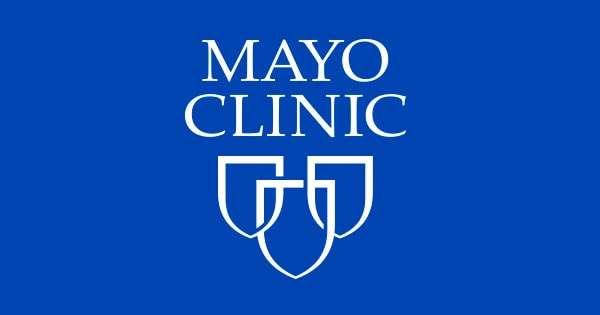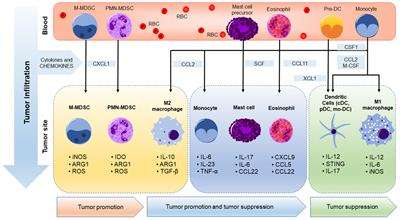Penn State Health Approach to Therapy Services
As the only academic medical center in central Pennsylvania, we offer the latest approaches and a full spectrum of therapy services. You can get leading-edge treatments before they’re widely available – methods supported by clinical research and medical innovation. We have the expertise to treat even the most complex problems. Our team develops a treatment plan that helps you live your best life.
Whether you’re living with a chronic condition, recovering from an injury or illness, or need ongoing care, we specialize in improving function and enhancing your well-being.
Complete Rehabilitation Care and Therapy Services
Our rehabilitation experts offer complete rehabilitation and therapy services for people of all ages, including kid-friendly rehab for children and adolescents. We provide inpatient rehab care, outpatient therapy, and transitional care from the hospital to your home or a nursing facility. Whether you’re recovering from injury, surgery or illness or living with a condition that affects your quality of life, we work together with you to achieve your goals.
You get personal attention and a treatment plan that’s designed just for you, drawing from the latest rehab approaches. We use sophisticated equipment, such as wearable devices that improve muscle function, and provide care in state-of-the-art rehab facilities in several convenient locations. And, we make sure you’re well-informed about your condition to prevent injuries and function at your best.
We put together a team based on your needs – from physical, occupational and speech-language therapy to a combination of approaches that help you adjust to physical and mental limitations.
The comprehensive Neuro Day Program at Penn State Health Rehabilitation Hospital’s outpatient center offers the advantages of living at home while receiving the benefits of a full-day rehabilitation program with a comprehensive interdisciplinary approach to recovery.
The goal of the Neuro Day Program is to maximize personal and functional independence in order to re-establish a daily routine and ultimately, allow you to actively participate in community and life roles. The program is geared to patients who will benefit from high-intensity rehabilitation services, but do not require 24-hour nursing care in a hospital setting.
Admission criteria:
The following guidelines are used by the clinical team to help determine an individual’s appropriateness for admission into the program:
- Referral for at least two disciplines of therapy (any combination of physical, occupational or speech therapies)
- Goals to achieve independent functioning in the community
- Ability to tolerate six hours of activity per day
- Ability to attend the program Monday through Thursday
Program components:
In addition to physical, occupational and speech therapy, our program includes recreational therapy, group treatment, community outings and independent work time.
During recreational therapy, your therapists will work with you on meeting your goals on community reintegration and participation in leisure and recreational activities.
Group treatment includes working with other patients on functional tasks or projects, based on each participant’s goals. Groups can be cognitive-based and/or physical-based and include:
- Meal planning
- Cooking
- Community outing planning
- Problem solving activities/games
Community outings allow you to practice skills and strategies that are learned in physical, occupational, speech and/or recreational therapy while participating in activities such as:
- Grocery shopping
- Visiting a local park or community center
- Playing miniature golf/bowling
- Going to a local museum
- Working out at a local fitness center
Independent work time includes activities to help you establish independence based on your personal needs and goals, such as:
- Use of exercise equipment
- Functional electrical stimulation (FES) bike/Bioness®
- Self-stretching or strengthening exercises
- Speech therapy homework or worksheets
- Therapeutic rest time
The Neuro Day Program may be the first step in your rehabilitation or it may be the next step in your continuum of care, as you transition from hospital to home. Either way, we’re here to help.
View Child and Adolescent Psychiatry
The Penn State Health Approach to Mental Health and Psychiatry
It’s not unusual to feel sad, anxious or more emotional at times — that’s a normal part of life. But when your feelings affect your ability to function at home or work or impact your relationships, it’s essential to seek help.
The behavioral health experts at Penn State Health have advanced experience helping people feel better. Just like a medical condition, it’s important to get help early to prevent serious problems. Our compassionate, expert team offers care for the full range of mental health conditions — from anxiety and depression to schizophrenia and psychosis. As an academic medical center, we’re at the forefront of mental health advancements. That means you get the latest, proven approaches from knowledgeable, skilled mental health professionals.
You don’t have to go through this alone. We offer personal attention and a treatment plan to improve how you feel as quickly as possible.
Complete Care for a Full Range of Mental Health and Psychiatric Conditions
We offer a full range of mental health services for people of all ages, including specialized programs for children and teens. We partner with Pennsylvania Psychiatric Institute (PPI) to offer comprehensive care in a variety of settings — including inpatient treatment, day programs, outpatient counseling, individual and group therapy and more. We offer programs for substance use disorders, mood disorders, intellectual problems and many others.
Whatever you’re facing, we develop a treatment just for you — there’s no one-size-fits-all approach to mental health and well-being. Our specialists draw from a wealth of programs, services and resources to make sure you get complete care. We help you gain the tools to manage your emotions and behaviors and gain a greater sense of control and well-being.
Virtual behavioral health services now available to all through Penn State Health OnDemand app 
Effective today, community members can now access behavioral health services on their computer, smartphone or tablet using the Penn State Health OnDemand app.
“We initially rolled out this service to Penn State Health and Penn State College of Medicine staff and their eligible dependents,” said Chris LaCoe, vice president of virtual health services at Penn State Health. “It’s become so popular and helpful that we see the value of extending it to everyone in our community during a time of great need.”
Through the app, people can access:
- OnDemand Mental Health Therapy – Patients ages 10 and older can see a licensed psychologist or counselor online and discuss anxiety, depression, grief counseling and other common behavioral health challenges. Sessions typically last 45 minutes. Therapists also can coordinate future virtual appointments with a psychiatrist as needed.
- OnDemand Psychiatry – Patients can receive a psychiatric assessment, evaluation and treatment from a licensed psychiatrist. An initial consultation lasts 45 minutes. Psychiatrists can also provide care and ongoing medication management for bipolar disorder, cognitive disorders, eating disorders, obsessive-compulsive disorder and other conditions.
Patients using either service will receive an individualized treatment plan. A provider may recommend future visits and/or medication. Only psychiatrists can prescribe medication, and they are not able to prescribe controlled substances through virtual visits.
Virtual visits are secure and comply with Health Insurance Portability and Accountability Act patient privacy standards. Sessions are not recorded. Patients have the option of sharing session notes with their primary care providers through the service and may also request a copy for their own records.
To schedule an appointment, patients must download the free Penn State Health OnDemand app, create an account and enter their insurance information. Patients should check their insurance benefits plan to understand the costs they may incur. Anyone who needs help setting up their account should contact the virtual health concierge team at 1-833-774-3627.
If you’re having trouble accessing this content, or would like it in another format, please email Penn State Health Marketing & Communications.
The Penn State Health Approach to Speech-Language Pathology
Penn State Health Otolaryngology – Head and Neck Surgery (ENT) offers a strong speech-language pathology program that evaluates and treats a wide range of speech, language, cognitive, voice and feeding/swallowing disorders.
Our dedicated speech-language pathology team provides outpatient and inpatient services at Penn State Health Milton S. Hershey Medical Center and Penn State Health Children’s Hospital.
Inpatient services include:
- Clinical swallowing evaluations
- Instrumental swallowing evaluations
- Fiberoptic endoscopic evaluation of swallowing (FEES)
- Modified barium swallow studies (MBSS)
- Swallowing treatment
- Voice evaluation and treatment
- Post-laryngectomy care
- Speech-language-cognition evaluation and treatment
- Tracheostomy and speaking valve evaluation and treatment

Adult Speech-Language Pathology Services
Our team of speech-language pathologists (SLPs) specializes in helping adult patients improve their ability to communicate in their daily lives. Services and disorders treated include:
- Aural rehabilitation – helps patients with cochlear implants adjust and process environmental sounds by developing new speech and language skills. Aural rehabilitation can include practicing auditory training tasks, as well as applying strategies to help prevent and troubleshoot communication issues.
- Cognition disorders – reasoning and understanding are most often impacted by stroke, brain injury and neurodegenerative disease. Cognition disorders can affect attention, executive functioning and planning, information processing, memory, learning and self-awareness.
- Facial nerve impairment – evaluation of patients with facial weakness or facial paralysis by a multidisciplinary team at our Facial Nerve Disorders Clinic.
- Language disorders – many stroke and brain injury patients experience disorders of language production and comprehension. Progressive neurological diseases like Parkinson’s disease and dementia can also result in language difficulty. Our team is skilled in diagnosing and treating aphasia, which is an impairment in expressing spoken language, understanding spoken language, reading and writing.
- Laryngectomy pre- and post-care – the Penn State Health Otolaryngology team offers comprehensive services for patients undergoing a laryngectomy (removal of the voice box), including:
- Pre-laryngectomy counseling
- Post-laryngectomy education and care
- Education on post-laryngectomy voicing options
- Tracheoesophageal voice prosthesis (TEP) changes
- Speech disorders – difficulty producing speech, either with the planning or articulation of speech, can be caused by weakness or discoordination from stroke, brain injury, facial injury or progressive disease. Patients with a speech disorder might have a diagnosis such as dysarthria, acquired apraxia of speech or neurogenic stuttering.
- Swallowing disorders – difficulty swallowing is called dysphagia. Swallowing occurs in three phases: in the mouth, the throat and the esophagus. Our team diagnoses and treats swallowing disorders related to the mouth and throat, and we work with the gastroenterology team for esophagus swallowing concerns. Patients can experience swallowing difficulties due to neurological conditions, stroke, brain injuries, head and neck cancers and progressive diseases. Our team uses X-ray swallow studies to assess swallow function and diagnose swallowing disorders.
- Voice and airway disorders – our multidisciplinary team evaluates and treats voice disorders in the Otolaryngology Clinic. We work closely with a laryngologist to create a comprehensive treatment plan that includes voice evaluations and voice therapy for patients with voice disorders, including specialization with singers and professional voice users. We see a wide variety of voice disorders at the Otolaryngology Clinic, including:
- Age-related changes of the vocal folds (presbylarynx)
- Gender-affirming voice care
- Hoarseness
- Loss of range
- Muscle tension dysphonia
- Spasmodic dysphonia
- Voice change
- Vocal cord dysfunction (VCD)
- Vocal fold cysts
- Vocal fold nodules
- Vocal fold paralysis
- Vocal fold polyps
Dysphagia Pathway Program
Patients who are currently undergoing surgical and/or radiation treatment for head and neck cancer are a part of our dysphagia pathway program. Our team provides patients with pre-radiation counseling and swallowing exercises to help prevent surgical or radiation-related swallowing difficulties. If needed, our team will also create a more intensive swallowing therapy program after cancer treatment.




